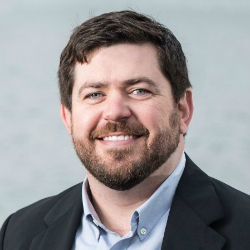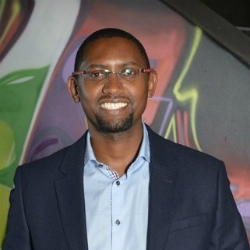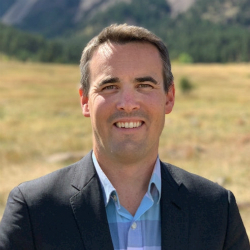

“The future success of these sustainability plans hinges on being able to track and report groundwater use, and likely will also require a robust way to trade groundwater shares as well,” said Alex Johnson, Freshwater Fund Director with TFT. “Our strategic intent is to harness new technologies to develop a system that makes getting groundwater more sustainable, collaborative, accurate and transparent process, which is why we are using the blockchain. We now have the project team and funding to do it, and a strong network of partners in the region that are open to an initial testing and building phase.”
TFT and the challenge
The pilot will happen in northern California’s Sacramento-San Joaquin River Delta, an area often referred to as the nexus of California’s statewide water system. The river delta covers some 1,100 square miles. It provides water to the San Francisco Bay Area and coastal and southern California and supports dozens of legally protected fish, plant and animal species. Agriculture uses almost 75% of this area.
Since 2016, TFT has built multiple programs in the Delta basin. In response to Senate Bill 88, TFT developed a measurement method for surface water diversion that addresses the unique qualities of the Northern Delta region. By 2017, 148 surface water diversions covering more than 29,000 farmed acres in the region — including wine grapes, pears, corn, alfalfa, safflower, tomatoes and wheat — had enrolled in a five-year study.
For groundwater concerns in the same area, TFT helped support the formation of the Northern Delta Groundwater Sustainability Agency. 17 local agencies formed into one integrated agency and began work on a unified plan for sustainably managing groundwater use. Unfortunately these agencies are understaffed. TFT provides the capacity to:
- gather and analyse data
- develop effective sustainability measures.
This project
Jointly funded by the Water Foundation and the Gordon and Betty Moore Foundation, the project’s scientists and engineers will seek to show how use of a blockchain and remote IoT sensors can:
- accurately measure groundwater usage
- do this transparently
- provide information in real-time.
The sensors will:
- transmit water extraction data to orbiting satellites
- add the data to the IBM Blockchain Platform hosted in the IBM Cloud
- record of all data exchanges or transactions made in an append-only, immutable ledger
- use smart contracts, whereby transactions automatically execute when specified conditions match.
Through a web-based dashboard, water consumers – including farmers, financiers and regulators – will be able to monitor and track the use of groundwater. This aims to demonstrate how sustainable pumping levels become achievable when there is trading of groundwater use shares in the State of California. In effect, individual users who require groundwater amounts beyond their share cap will be able to ‘purchase groundwater shares from users who do not require all of their supply at a market-regulated rate.
A practical example
TFT, IBM and SweetSense offer the example of a strawberry farmer who is planning to take the season off to prepare for an organic crop for the next harvest harvest. That farmer can trade or sell his or her water credits, as expressed on the blockchain, to another farmer – perhaps a winery facing a dry season.
In this instance the winery realises it will need additional water if it is to avoid losing its vintage. The winery can use the blockchain to find ‘unused’ water and then purchase additional water shares. The net effect is not to negatively affect the aquifer.
“Based on a research project in Kenya with USAID, the Millennium Water Alliance and other partners we are now applying our expertise in building decision support systems for water management for surface and groundwater data aggregation, workflow optimization and analytics to address similar challenges in California. With the addition of the blockchain we can bridge critical trust and transparency gaps making it possible to build a robust, scalable and cost-efficient platform for managing precious groundwater supplies anywhere in the world,” said Dr. Solomon Assefa, Vice President, Emerging Market Solutions and Director, IBM Research – Africa.

The sensor technology
The sensor technology comes from SweetSense. SweetSense is already monitoring the groundwater supplies for over a million people in Kenya and Ethiopia. It has plans to increase this to cover five million people by the end of 2019. The sensor data transmits over satellite networks to an online data analytics platform.
SweetSense technology consists of a low-power, cellular or satellite enabled integrated instrument. Sweetsense customises this for installation in community and household level environmental service interventions. Key features include:
- distributed processing between hardware and the cloud
- remote automated recalibration and reconfiguration
- processing occurs in the cloud (which also enables the remote recalibration).
“By remotely monitoring groundwater use using our sensors, we’re able to help improve and maintain sustainable access to water supplies for people, farmers, and livestock. The work we’re doing in Africa is directly translatable to California,” said Evan Thomas, CEO of SweetSense and Mortenson Chair of Global Engineering at the University of Colorado Boulder. “Our research team at the University of Colorado will assist in modeling groundwater use through the sensor data and satellite detected rainfall and weather correlations.”

Enterprise Times: what does this mean
This collaboration began in response to the Sustainable Groundwater Management Act (SGMA), which was signed into California law in 2014. SGMA mandated the creation of Groundwater Sustainability Agencies (GSAs). These are local groups which:
- take responsibility for ensuring regional groundwater supplies are sustainably managed
- have the charge to develop and implement plans to make their local groundwater usage sustainable by 2040.
But such groundwater groups need support and resources. This is what The Freshwater Trust, SweetSense and IBM are providing, in what will likely be an explicit proof of how IoT (the sensors), satellite technologies and blockchain can come together to deliver a public as well as agricultural good.


























